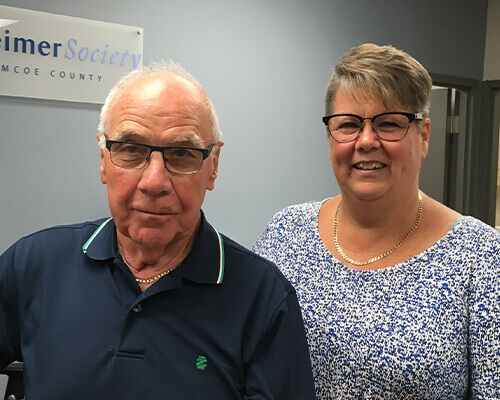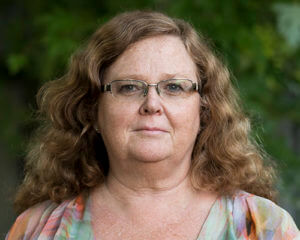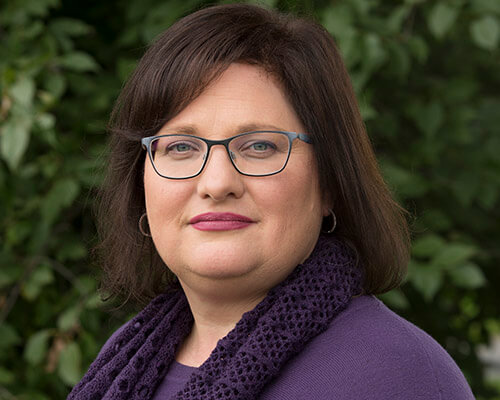Lee and Jacques
My name is Lee LaForest, and my husband Jacques was diagnosed with Frontotemporal dementia in January 2018. He told the neurologist he was feeling confused for the past 18 months but didn’t know why.
For me, the diagnosis was an absolute relief. To be honest, I sobbed…you know the ugly cry…the dam broke. The neurology team could not have been more supportive. I was completely beside myself; validation for Jacques overcame me. Finally, the answer confirmed what I had been witnessing in his behaviour for the past five years. With those six words, it all came together. Joy, then sadness, then after a while, our life together shifted before me.
The health-care system
Every single health-care professional has been nothing but professional. Jacques, who was a family physician, is still their colleague. They treat him with respect, engaging him in discussions regarding his treatment plan and medication. They understand that Jacques’ capacity is extremely limited, but they don’t focus on that. We plough through together, making sure I’m on board with the treatments offered. Everyone has been great, including, but not limited to, physiotherapy, occupational therapy, LHIN homecare and the Victorian Order of Nurses (VON).
People’s reactions
We are extremely blessed to have great friends. We were very social prior to Jacques’ diagnosis and that has remained unchanged. But it looks different now. Our friends still have us to the cottage, but during the week when it’s quieter. We do dinners, but in our home so that stimulation is lessened. The men visit Jacques for dinners or lunches while the wives go out for dinners or get together for shopping. The men sometimes pop around for coffee so I can go out for a break. Our friends are wonderful; they’re always inclusive and never judge.
We have a blended family and the reaction of our adult children was interesting. The eldest said nothing, the middle one thought death was imminent and the youngest wanted to know what life would look like for us going forward and what his role would be.
Jacques’ niece and her husband are a physician and nurse. They check in regularly along with his other niece and his sister. His sister has visited for extended periods of time to help me. Most of our extended family lives away, so to stay connected we talk on the phone or chat through social media or email. It works well—thank goodness for FaceTime!
Facing stigma
We haven’t faced any stigma. We are open about everything which I believe helps. Mostly, we have received the common answer, “I am so sorry…If I were in your shoes, I do not think I could do it”. That statement aggravates me to no end…
Really, what choice do you have? Do nothing and lead an even more difficult life than what you are facing? Or say, “Why us?” and get educated. If this disease was cancer, high blood pressure, diabetes—any other chronic disease, really—would you throw in the towel and walk away? I hope not.
Instead, you educate yourself and do your best to live the best life you can, for as long as you can, right? When I say that to people they stop and think. It doesn’t make those statements go away, but it gives people something to think about and perhaps it encourages them to change their way of thinking.
Learning to live with dementia
There are a lot of things that we could say to help people who receive this diagnosis. Here’s what Jacques says:
- Accept the diagnosis.
- Don’t fear medication(s) if you’re offered them. They may help.
- Make sure you completely understand the prognosis you are facing.
- Understand that it will become worse.
- Accept the fact that at some point the person you’re caring for may need to be moved to long-term care
- See a psychiatrist – at least one time before you begin to decline. Depression is extremely common with this diagnosis and a psychiatrist can help you.
- This is not an age-related disease.
I say to health-care professionals—if a person with dementia has questions, keep the answers simple and honest. As their cognitive ability declines, start answering on a need-to-know basis. If they say to you that they’re sorry and don’t remember, let them know it’s okay, it will come back to them, then change the subject.
Most often, they will say that they think they’re going crazy. I tell them that it’s okay to feel a little off, it doesn’t mean they’re crazy, then change the subject to engage a healthier conversation. It’s all about keeping it as simple as possible but still allowing them to converse without the fixation.
When we talk about stigma in general, Jacques feels that between five to ten percent have changed their attitude regarding dementia, accepting that it’s a neurological disease. Versus the other ninety percent who still feel it’s due to old age partnering with mental health issues. I agree with Jacques.
My husband says the only way to get through the stigma is to talk about it, become educated and carry on with your life as best as you can for the time you can. Don’t stay inside—get out, enjoy your surroundings and stay connected with your community.
We need to be inclusive, but we also need to be mindful that we, as caregivers, need to look after ourselves as well. Asking for help or using respite services is a good, kind thing to do for ourselves.
Comments
We may use your information in order to track your relationship with us and our site(s). We do NOT share your information with third parties.

Here are my tips to help you understand:
- As a caregiver speaking with families who have someone with dementia, I say that you will eventually have to mourn the loss of the husband, father, uncle, brother, mother, aunt, sister or friend you knew. This is extremely hard to do because you are still looking at the identical person on the outside. Mourning will allow you to begin accepting the new person who has moved into this body. You will not like it, but, given time, you will become accepting.
- As the decline in memory becomes more apparent, make sure you introduce yourself every time you see them. Keep the conversation about past events in their life which were meaningful to them and remain present in their company.
- If you see them struggling, don’t assume that they need help. Instead, ask if they need help. If they lose their ability to remain independent, give them choices. For example, when it comes to meals, you may make decisions for them like cutting up their meat, but you can also let them decide what to eat. Make it easier for them by reducing their options—give no more than two. If they are unable to choose between the two options, then make the decision for them. If they have difficulty shaving with a razor blade, give them an electric razor to use…subtle changes can make a world of difference.
- To change stigma, talk, talk, talk. Get out into your community daily. Don’t make excuses for behaviours they may show outside. Let people know that the person you care for has ALZHEIMER’S disease and get on with your day. People in the community will understand.
- Most of all, walk beside them, not ahead or behind. You are walking with them. Walk a little slower. All will be well.
-
More Stories
-

Jane
2019
Ontario
-

Keith
2019
Ontario
-

Robin
2019
Ontario
-

Shelley
2018
Ontario

Lee Laforest 1778 days ago
Yes, you ,may.
Pat 1779 days ago
We are blessed to have good quality visits with Jacques and Lee. We realize these visits go smoothly because of the careful planning and guidance Lee puts in to each visit. Jacques and Lee, we are looking forward to your visit.
Lee 1779 days ago
Great Lee and Jacques! So happy our friendship has developed through our shared journey which sadly ended for my husband in September 2019. I agree, talk, talk, talk. There is no shame in dementia, the shame comes through embarrassment, ignorance and trying to hide this journey your life has taken. Keep moving forward guys, and I for one will be with you every step of the way!